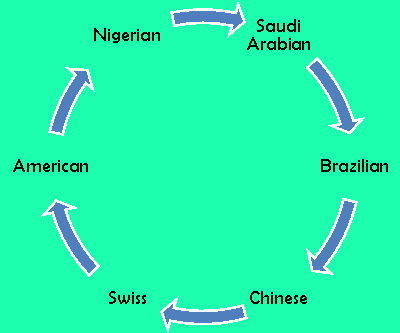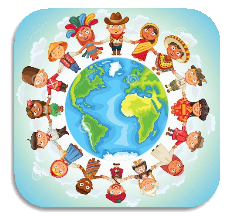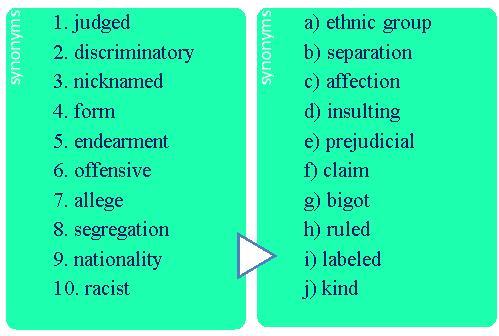урок позакласного читання 11 клас
 The Term "Kiwi"
The Term "Kiwi"
- WARMING UP
- What do you know about these nationalities?
- What would you like to know? Why?


- LISTEN
- Read the headline. Guess if 1-8 below are true (T) or false (F).
1. A New Zealand court said the term "kiwi" was not discriminatory. T / F
2. A bakery worker said her colleagues insulted her by calling her "Kiwi". T / F
3. The bakery owner said New Zealanders were proud of the term "Kiwi". T / F
4. The bakery owner said Kiwi" was a term of endearment. T / F
5. A tribunal judge ruled that the term "Kiwi" was an insult. T / F
6. The judge said the worker was segregated at work. T / F
7. An equal opportunity commissioner acted on the worker's behalf. T / F
8. The bakery only employs three different nationalities. T / F
- Listen and check yourself.
- Listen again and fill in the gaps
A court in Australia (1) ___________________ the use of the word "Kiwi" to describe a person from New Zealand is not discriminatory. New Zealander Julie Savage (2) ___________________ against an Australian bakery where she was nicknamed "Kiwi" by her colleagues. (3) ___________________ the term "Kiwi" was a form of racial discrimination and was insulting and disrespectful. However, the employment (4) ___________________ and dismissed her complaint. The bakery owner argued that the term "Kiwi" was one that most New Zealanders (5) ___________________. He said the New Zealand government openly endorses the term and that it was used as "a term of endearment and as a (6) ___________________ as a New Zealander".
The tribunal judge ruled that calling a New Zealander a Kiwi (7) ___________________. She said: "'Kiwi' is not an insult." In her findings, the judge observed that Ms Savage, "did not (8) ___________________ suffered unfavourable treatment in respect of the terms of her employment, (9) ___________________ or segregation". Australia's Commissioner for Equal Opportunity acted on Ms Savage's behalf. She determined that: "If someone takes particular (10) _________________ nickname and doesn't like it and says they don't like it and asked not to be called that anymore, then (11) ___________________ workplace, that's what you'd do, you wouldn't call them that anymore." The bakery owner said he employs "every nationality (12) ___________________" and is not a racist.
- Vocabulary
- Read the words and match them with their definitions:
|
1. |
court |
a. |
A place where a judge or judges listen to and decide on civil and criminal cases; (also called a tribunal). |
|
2. |
discriminatory |
b. |
Disrespectful. |
|
3. |
complaint |
c. |
Making or showing an unfair treatment between different people or things, especially because of race, age, or sex. |
|
4. |
nickname |
d. |
People with whom one works in a profession or business. |
|
5. |
colleagues |
e. |
A statement that a situation is unsatisfactory or unacceptable. |
|
6. |
insulting |
f. |
A well-known or funny name given to a person or thing instead of or as well as the real name. |
|
7. |
endearment |
g. |
A word or phrase expressing love or affection. |
|
8. |
findings |
h. |
A breach of a law or rule; an illegal act. |
|
9. |
treatment |
i. |
The action or state of setting someone or something apart from other people or things or being set apart. |
|
10. |
allege |
j. |
Conclusion(s) reached as a result of an inquiry, investigation, or trial. |
|
11. |
segregation |
k. |
Firmly decided. |
|
12. |
offence |
l. |
The manner in which someone behaves toward or deals with someone or something. |
|
13. |
determined |
m. |
A person who shows or feels discrimination or prejudice against people of other races. |
|
14. |
racist |
n. |
Claim or state that someone has done something illegal or wrong, typically without proof that this is the case. |
4. SYNONYM MATCH
- Match the following synonyms from the article.

5. SPEAK
- Students A strongly believe we should not use nicknames for nationalities;
- Students B strongly believe there's nothing wrong with that.

про публікацію авторської розробки
Додати розробку
